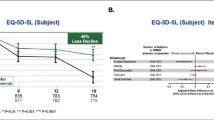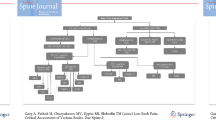Abstract
Background and aims: Caregivers of Parkinson’s disease patients are vulnerable to detrimental factors related to caregiving because of the progressive course of the disease. Studies of caregivers of these patients are scarce. The aim of this study was to examine the caregiver burden in Parkinson’s disease by analyzing caregiver and patient-related factors. Methods: Every 3rd patient with Parkinson’s disease registered at the outpatient clinic of the Neurology Department was invited to participate. One year after the first investigation, a follow-up was performed with a study of caregiver burden. A total of 65 caregivers took part. In-home interviews with patients and caregivers were performed. Assessments: a) caregiver burden, 22 items, comprising five indices: general strain, isolation, disappointment, emotional involvement, and environment; b) sense of coherence, 13 items, with the components comprehensibility, manageability and meaningfulness; c) depressive symptoms, using the Geriatric Depression Scale, 15 items; d) social contacts, 6 items; e) patient subjective health, assessed with the Parkinson’s disease questionnaire, 39 items; and f) patient functional status. Results: Bivariate analyses showed significant correlations between caregiver burden and sense of coherence in caregivers, patient functional status, depressive symptoms in caregiver and patient, patient subjective health and time since diagnosis. Multivariate analysis showed depressive symptoms and sense of coherence in caregiver, and functional status in patient to be the most important variables for caregiver burden. Conclusions: To ease the caregiver burden, attention should be paid to patient functional status and caregivers depressive symptoms. The sense of coherence in caregivers is probably more difficult to influence.
Similar content being viewed by others
References
Habermann B. Spousal perspective of Parkinson’s disease in middle life. J Adv Nursing 2000; 31: 1409–15.
Zarit SH, Reever KE, Bach-Peterson J. Relatives of the impaired elderly: correlates of feelings of burden. Gerontologist 1980; 20: 649–55.
Bédard M, Pedlar D, Martin NJ, Malott O, Stones MJ. Burden in caregivers of cognitively impaired older adults living in the community: methodological issues and determinants. Int Psychogeriatr 2000; 12: 307–32.
Fall PA, Axelson O, Fredriksson M, et al. Age-standardized incidence and prevalence of Parkinson’s disease in a Swedish community. J Clin Epidemiol 1996; 49: 637–64.
Elmståhl S, Ingvad B, Annerstedt L. Family caregiving in dementia; prediction of caregiver burden 12 months after relocation to group-living care. Int Psychogeriatr 1998; 10: 127–46.
Deimling GT, Bass DM. Symptoms of mental impairment among elderly adults and their effects on family caregivers. J Gerontol 1986; 41: 778–84.
O’Reilly F, Finnan F, Allwright S, Smith GD, Ben-Shlomo Y. The effects of caring for a spouse with Parkinson’s disease on social, psychological and physical well-being. Br J Gen Practice 1996; 46: 507–12.
Berry RA. Murphy JF. Well-being of caregivers of spouses with Parkinson’s disease. Clin Nursing Res 1995; 4: 373–85.
Whetten-Goldstein K, Sloan F, Kulas E, Cutson T, Schenkman M. The burden of Parkinson’s disease on society, family, and the individual. J Am Geriatr Soc 1997; 45: 844–9.
Caap-Ahlgren M, Dehlin O. Insomnia and depressive symptoms in patients with Parkinson’s disease. Relationship to health-related quality of life. An interview study of patients living at home. Arch Gerontol Geriatr 2001; 32: 23–33.
Elmståhl S, Malmberg B, Annerstedt L. Caregivers burden of patients 3 years after stroke assessed by a novel caregiver burden scale. Arch Phys Med Rehabil 1996; 77: 177–82.
Persson D, Eklund M, Isacsson A. The experience of everyday occupations and its relation to sense of coherence — a methodological study. J Occup Sci 1999; 1: 13–26.
Lazarus RS, Folkman S. Stress, appraisal and coping. New York: Springer Publishing Company, 1984.
Antonovsky A. The structure and properties of the sense of coherence scale. Soc Sci Med 1993; 36: 725–33.
Sheikh JI, Yesavage JA. Geriatric depression scale (GDS). Recent evidence and development of a shorter version. In Brink TL, Ed. Clinical gerontology: A guide to assessment and intervention. Binghamton. NY: Haworth Press. 1986: 165–73.
Samuelsson G, Andersson L, Hagberg B. Loneliness in relation to social, psychological and medical variables over a 13-year period: a study of the elderly in a Swedish rural district. J Ment Health Aging 1998; 4: 361–79.
McCamish-Svensson C, Samuelsson G, Hagberg B, Svensson T, Dehlin O. Informal and formal support from a multidisciplinary perspective: a Swedish follow-up between 80 and 82 years of age. Health Soc Care Community 1999; 7: 163–76.
Hoehn M. Yahr M. Parkinsonism: onset, progression and mortality. Neurology 1967; 17: 427–42.
Peto V, Jenkinson C, Fitzpatrick R. PDQ-39: a review of the development, validation and application of a Parkinson’s disease quality of life questionnaire and its associated measures. J Neurol 1998; 245(Suppl. 1): 10–4.
Jenkinson C, Peto V, Fitzpatrick R, Greenhall R, Hyman N. Self-reported functioning and well-being in patients with Parkinson’s disease: comparison of the short-form health survey (SF-36) and the Parkinson’s disease questionnaire. Age Ageing 1995; 24: 505–9.
Long K, Sudha S, Mutran EJ. Elder-proxy agreement concerning the functional status and medical history of the older person: the impact of caregiver burden and depressive symptomatology. J Am Geriatr Soc 1998; 46: 1103–11.
Carter JH, Stewart BJ, Archbold PG, et al. Living with a spouse who has Parkinson’s disease: the spouse’s perspective by stage of disease. Movement Dis 1998; 13: 20–8.
Zarit SH, Todd PA, Zarit JM. Subjective burden of husbands and wives as caregivers: a longitudinal study. Gerontologist 1986; 26: 260–6.
Jensen E, Dehlin O, Hagberg B, Samuelsson G, Svensson T. Depressive symptoms in an 80-year old population in relation to medical, psychologic, and sociologic variables. Nord J Psychiatry 1994; 48: 349–54.
Hobson JP, Meara RJ. Is the SF-36 health survey questionnaire suitable as a self-report measure of the health status of older adults with Parkinson’s disease? Qual Life Res 1997; 6: 213–6.
Lee KS, Merriman A, Owen A, Chew B, Tan TC. The medical, social, and functional profile of Parkinson’s disease patients. Singapore Med J 1994; 35: 265–8.
Klevsgård R, Hallberg IR, Risberg B, Thomsen MB. The effects of successful intervention on quality of life in patients with varying degrees of lower-limb ischemia. Eur J Vasc Endovasc Surg 2000; 19: 238–45.
Sunvisson H, Ekman S-L, Hagberg H, Lökk J. An education programme for individuals with Parkinson’s disease. Scand J Caring Sci 2001; 15: 311–7.
Author information
Authors and Affiliations
Corresponding author
Rights and permissions
About this article
Cite this article
Caap-Ahlgren, M., Dehlin, O. Factors of importance to the caregiver burden experienced by family caregivers of Parkinson’s disease patients. Aging Clin Exp Res 14, 371–377 (2002). https://doi.org/10.1007/BF03324464
Received:
Accepted:
Published:
Issue Date:
DOI: https://doi.org/10.1007/BF03324464




